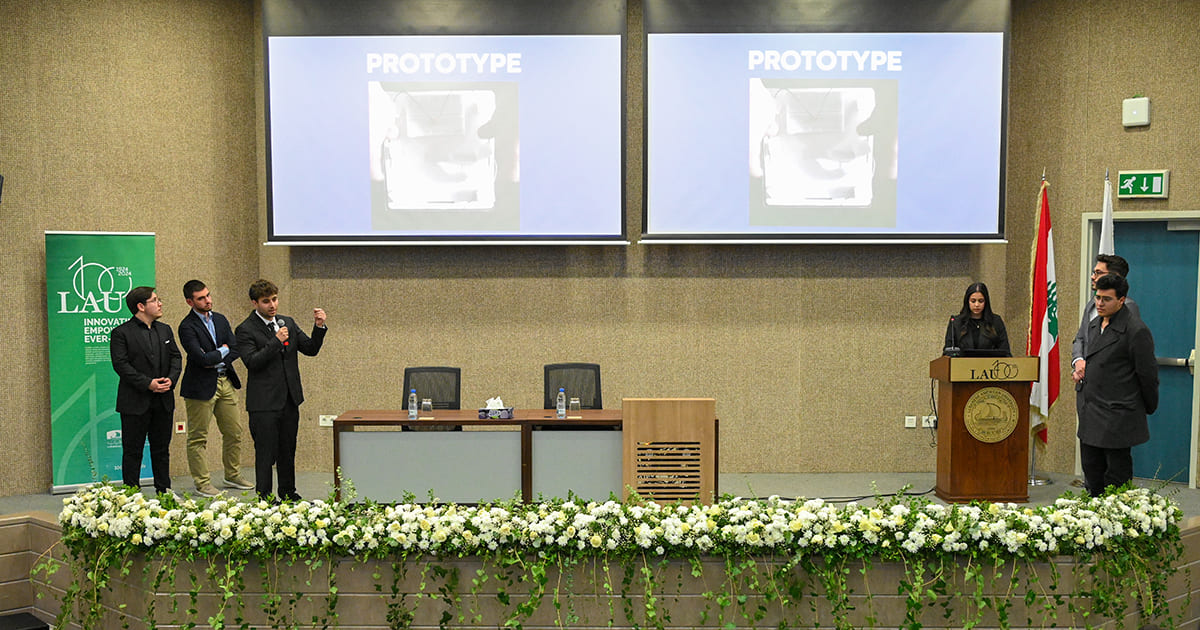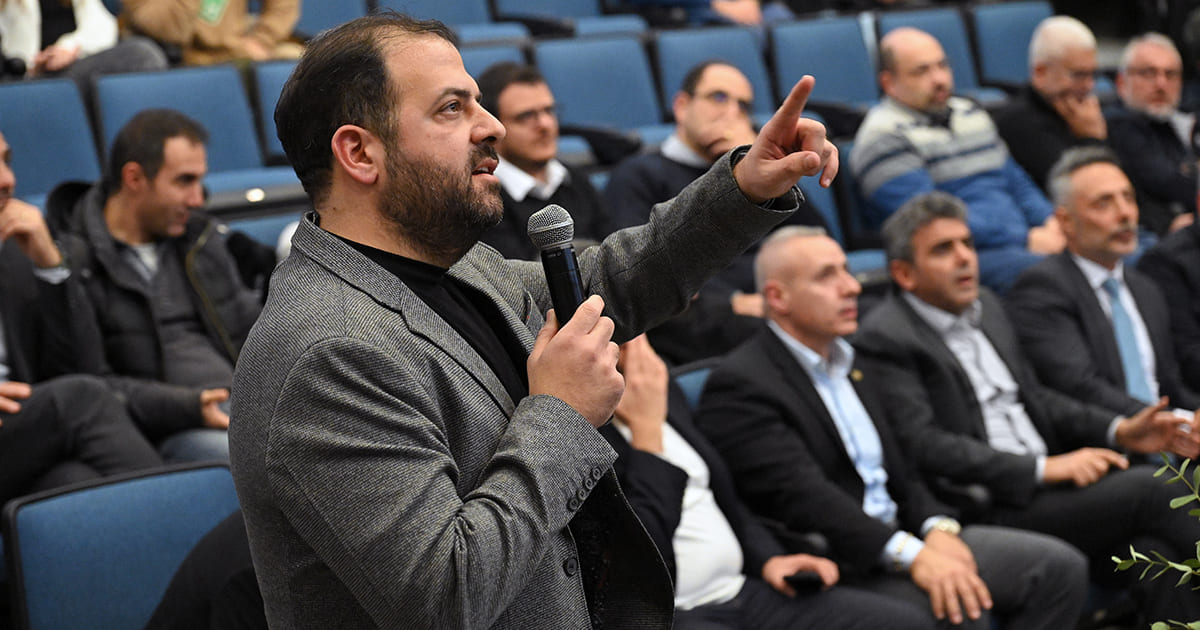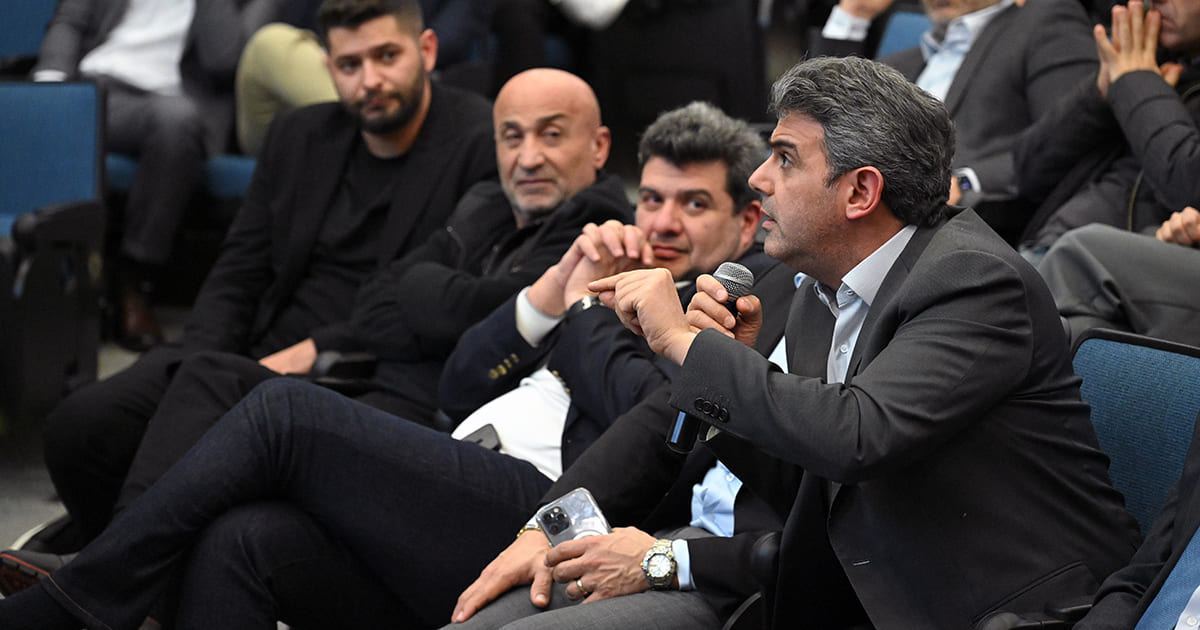Engineering Students Take the First Step Toward Public Impact
Multidisciplinary engineering teams develop civically engaged and ethically responsible projects to help enhance public services and improve community life in Byblos.
Embarking on a civic mission with a purpose, mechanical, computer, electrical, industrial, civil, mechatronics and petroleum engineering students roamed the city of Byblos and met with municipality officials to better understand the challenges faced by its community.
Subsequently, over one month, they worked together to develop conceptual solutions for the city, from waste management and clean energy to access to clean water as part of the School of Engineering’s newly introduced course, Civic Engagement for Engineers.
Their efforts culminated in Bridging Academia and Community: Students Designing Solutions of Tomorrow, an event held on January 27 at the Byblos campus, where they presented prototypes addressing multiple Sustainable Development Goals (SDGs), with a focus on sustainable infrastructure and improved public services for the Byblos community, to municipality members, deputies, community leaders and industry professionals. A team of engineering students and faculty from the Georgia Institute of Technology (Georgia Tech) joined the event remotely.
In his opening remark, course instructor Elie Elias highlighted the hands-on approach that shaped the students’ projects. “What you see today are five unique project concepts that came out of this experience,” he said. “Each idea was born from walking the streets of Byblos, listening to its people and imagining what is possible.”
For third-year industrial engineering student Selena Samarani, assessing the feasibility and logistics of retrofitting and importing e-bikes to ease traffic congestion and reduce pollution felt like taking on a real-world challenge. She valued the diversity of her team, explaining, “Our group brought together students from different majors, which was great because each of us focused on a different aspect of the project.” As an expat who came to Lebanon for university, she also embraced the opportunity to explore Byblos and immerse herself in its rich heritage.
As for mechanical engineer George Abdallah (BE ’24), presenting alongside his teammates on a smart waste management system was a chance to address a pressing environmental issue—overflowing bins in high-traffic areas. Their solution involved an enclosed structure equipped with IoT sensors to analyze data, optimize collection schedules and routes, and even serve as a platform for local advertising campaigns. The course gave him “a feeling of involvement,” he said. “It helped me feel connected to Byblos rather than seeing it only being a city where I went to study.”
Among the attendees was MP and former President of the Byblos Municipality Ziad Hawat, who praised the students for their efforts in tackling such critical issues, and affirmed the city’s readiness to collaborate on implementing their ideas when the opportunity arises.
“This is only the start,” said Dean of the School of Engineering Michel Khoury. “By strengthening our ties with municipalities across the country, we can become a local innovation hub, share knowledge and truly grow a stronger community.”
The course will be offered again in the spring and fall of 2025 where fourth-year LAU and Georgia Tech engineering students will work with chosen municipalities to develop and design engineering solutions to community problems.


